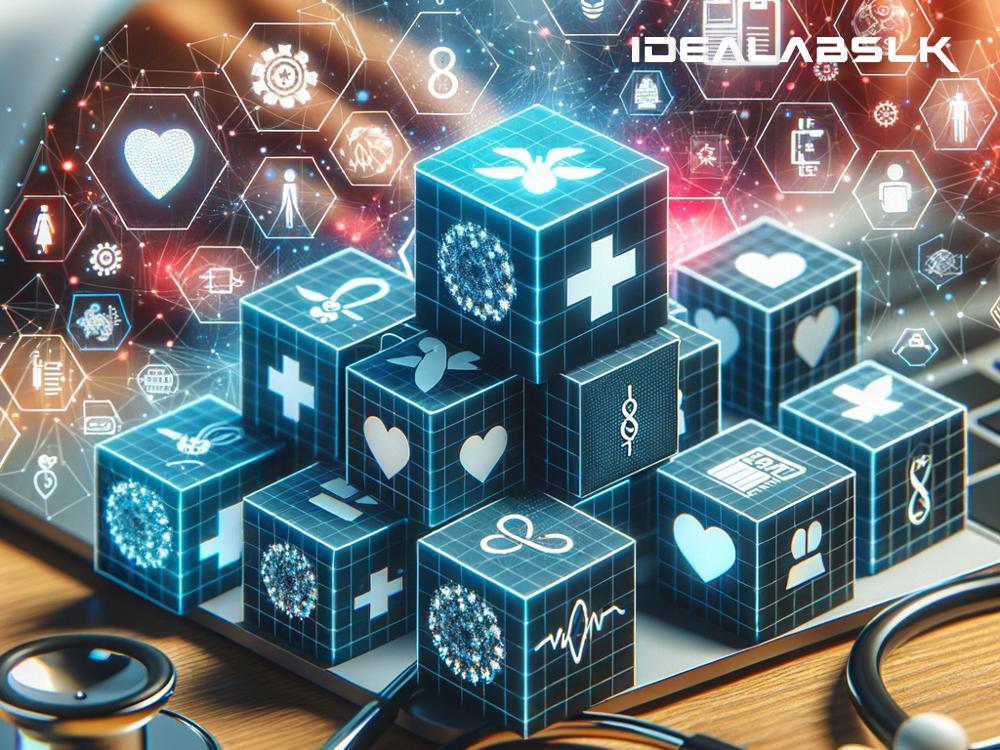Breaking Down How Blockchain Technology is Revolutionizing Healthcare
In the ever-evolving world of technology, Blockchain stands out as a beacon of potential, especially within the healthcare sector. While the term "Blockchain" might bring to mind images of cryptocurrencies such as Bitcoin, its application goes far beyond just digital currencies. At its core, Blockchain technology offers a secure, transparent, and unalterable system for recording information, making it an ideal solution for tackling some of healthcare's most pressing challenges.
What is Blockchain, Anyway?
To put it in simple terms, think of Blockchain as a digital ledger. Imagine a book where you jot down transactions or records. Now, imagine this book is digital and copies of it exist across a network of computers. Every time a new transaction occurs, a record of that transaction is added to every copy of the book in the network. This means it's nearly impossible to change or tamper with a record without altering all the copies in the network, which is equally difficult to do.
Why Healthcare?
The healthcare sector is plagued with issues related to data breaches, counterfeit medicines, and inefficient record-keeping systems. Patient records are often scattered across different healthcare providers, making them difficult to access in a timely manner and increasing the chances of errors. This is where Blockchain technology steps in, offering a unified, secure, and immutable records system.
So, How Does Blockchain Technology Work in Healthcare?
1. Secure Patient Records: With Blockchain, patient records can be stored securely and shared instantly with authorized users. Each patient could have a unique identifier in the Blockchain, allowing them seamless access to their records, irrespective of their location or the healthcare provider they visit. This not only enhances the security of sensitive information but also improves the continuity and quality of care.
2. Counterfeit Drug Detection: Counterfeit drugs are a global problem. Blockchain technology can be used to track the production, shipment, and delivery of pharmaceuticals. By creating a tamper-proof supply chain, it ensures that the drug you receive at the pharmacy is exactly what it claims to be, directly impacting patient safety.
3. Clinical Trials and Research: Blockchain can revolutionize how clinical trials are recorded and how research data is shared among scientists. By creating an immutable record of clinical trials, it ensures transparency and integrity in medical research. This also means that findings from research are accessible and can be built upon without the fear of data being altered or misrepresented.
4. Health Insurance Claims Processing: Processing health insurance claims can be a complex and fraud-prone process. Blockchain can simplify this by transparently and securely recording each step of the process. This minimizes fraudulent claims, speeds up the approval process, and reduces administrative costs, benefiting both healthcare providers and patients.
5. Informed Consent: Blockchain technology can provide a secure and immutable way of recording patient consent for procedures and participation in clinical trials. This not only streamlines the process but also ensures that patient consents are not tampered with, protecting both the patients and healthcare providers legally and ethically.
Challenges Ahead
While the potential of Blockchain in healthcare is immense, there are still challenges to overcome, including the need for standardization, issues around privacy and data protection, and the significant investment required to overhaul existing systems. Moreover, the success of Blockchain in healthcare heavily relies on collaboration among various stakeholders, including healthcare providers, patients, governments, and technology developers.
A Path Forward
The journey of integrating Blockchain technology into healthcare is just beginning. Pilot projects and initiatives across the globe are already showing promising results, paving the way for a more secure, efficient, and patient-centered healthcare system. As technology evolves and stakeholders come together to address the challenges, the vision of a Blockchain-powered healthcare system seems increasingly attainable.
In conclusion, Blockchain technology holds the promise of transforming the healthcare industry by providing solutions to longstanding problems such as data breaches, counterfeit drugs, and inefficient record-keeping. By ensuring the confidentiality, integrity, and accessibility of medical records and processes, Blockchain stands to significantly improve both patient outcomes and the overall efficiency of the healthcare sector. As we continue to explore this technology's full potential, it’s clear that Blockchain could well be the backbone of the next generation healthcare system, benefitting patients and providers alike.

